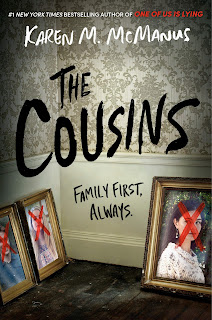The accepted writing genre of Prince of Rasselas
Perhaps it would have been more fitting for Johnson to keep the title of his apologue "The Choice of Life," as at the moment he wrote, his mother lay dying. It is these small decisions that have catastrophic consequences in one person's path, and Johnson was able to link different genres of media to make decisions of people.
The genre itself, an apologue, is not new, though in terms of Johnson's work, this text has little point. While the characters leave their utopia Abyssinia, they eventually end up back in the same place. Perhaps this is a commentary on the types of works that last the longest-written works will span generations.
The Prince later encounters a professor, who functions as a mouthpiece for rhetorical oration within Johnson's text. The Prince notes that " "His look was venerable, his action graceful, his pronunciation clear, and his diction elegant." (2704) In this case the spoken word is given a higher authority, but Imlac slays this admiration by adding: "Be not too hasty...to trust or admire the teachers of morality: they discourse like angels, but they live like men." (2704) The audience senses that the words are just a mask for men to behave poorly, as the Prince leaves "convinced of the emptiness of rhetorical sound." (2705) Could this be a commentary on the genre of rhetorical composition as a whole?
This is later earlier commented upon when the Prince encounters music that attempts to rhetorically argue for confinement: "To heighten their opinion of their own felicity, they were daily entertained with songs, the subject of which was the happy valley." (2682) Here again words are used as a weapon, a way to mask the truth behind a situation. While the valley's inhabitants were safe and cared-for, they were all not certainly happy. Songs are the spoken word, and the Prince can see through their superficiality.
The only sense of a genre that functions to its purpose is poetry. Imlac discusses the importance of the poet and his work: "He must write as the interpreter of nature and the legislator of mankind, and consider himself as presiding over the thoughts and manners of future generations, as a being superior to time and place." (2694) Poetry is praised as a form of truth after careful attention from the poet himself. The reader is left to believe that this written genre is the most honest, the most acceptable to read, as Imlac is a highly respected and well-traveled character. He is the fountain of knowledge within the confines of Abyssinia. The written word, but most especially poetry, is given a higher status.
In the end, this poetry is unattainable by all the characters, even Imlac. They realize that their goals are impossible and return to Abyssinia, to the songs without the poetry. I believe the function of genre within Johnson's work is to bare the morality of the character; the spoken word can be false, while the written poetry passes through generations. Johnson could even be commenting on his own work, that this written apologue, while it does not have a clear point for the characters, functions within the print culture of the day: "To a poet, nothing can be useless." (2693) Not even a story that seems to go nowhere.
Greenblatt, Stephen. The Norton Anthology of English Literature, Eighth Edition, Volume 1: The Middle Ages through the Restoration and the Eighteenth Century: 8th Edition. 8th. New York: Norton, W. W. & Company, Inc., 2005. Print.
Photo-http://www.birmingham.gov.uk/
Subscribe to:
Post Comments (Atom)
On My Bookshelf: December
December has been a really rough month. Between what happened in Oxford (not far from where I live...) and just the general pandemic issues,...

-
December has been a really rough month. Between what happened in Oxford (not far from where I live...) and just the general pandemic issues,...
-
Oh my goodness it has been a busy few weeks! With winter storms, paper deadlines, and squirmy students, I've found little time to play w...
-
Recently I've found myself fascinated by the jewelry of the 18th century. It just seems glossier, shinier...and you know I love my shi...

No comments:
Post a Comment